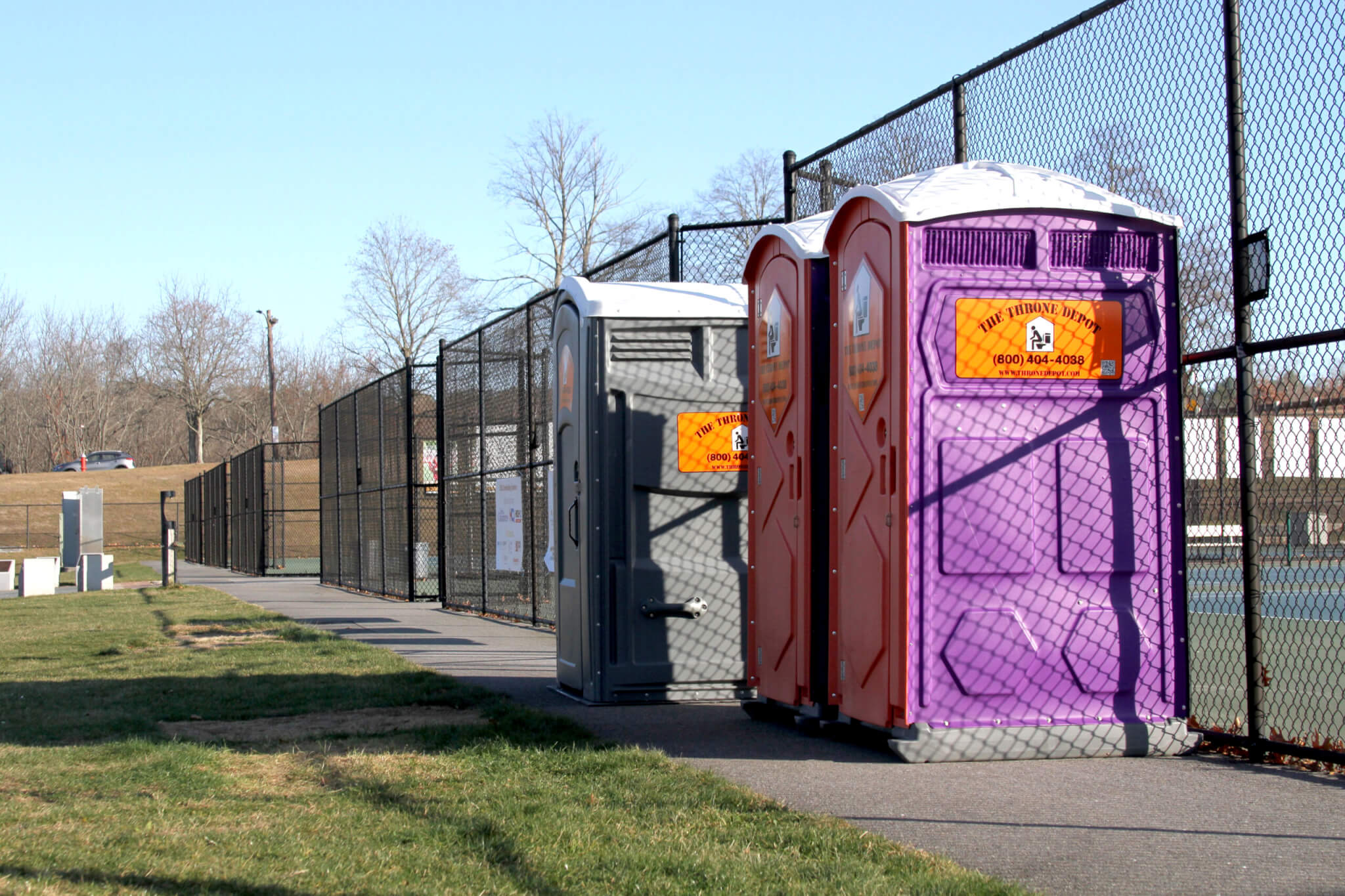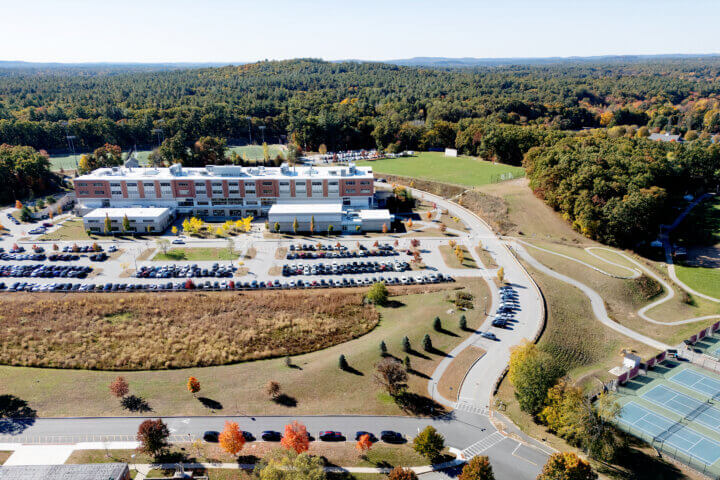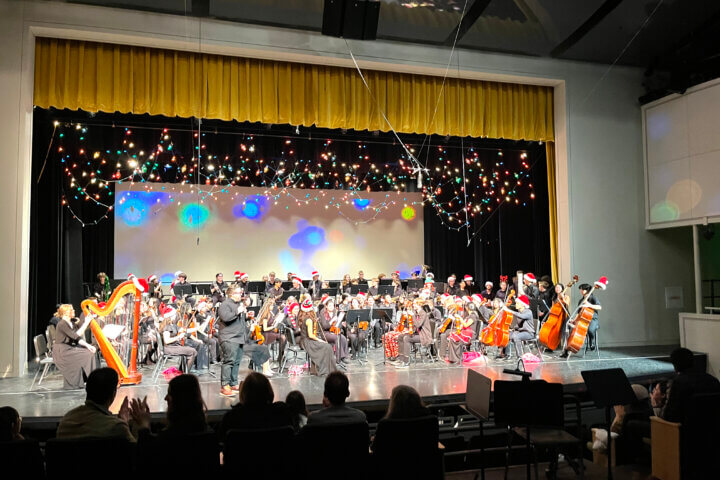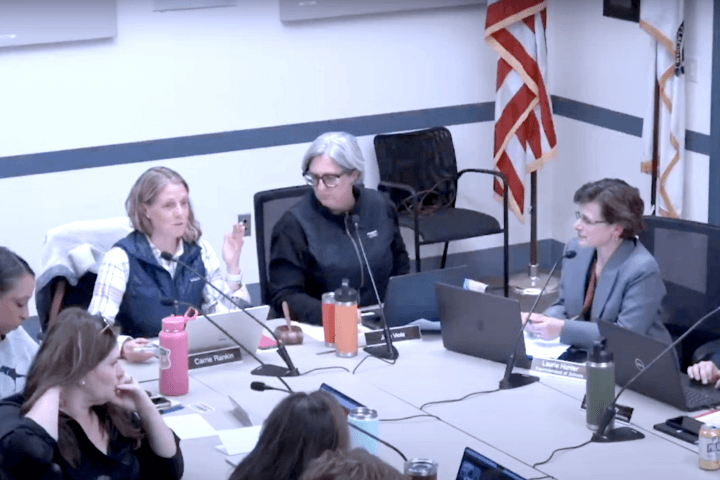By Dakota Antelman — Dakota@concordbridge.org
The design options are in, and it’s estimated that a restroom building at Concord-Carlisle High School’s Memorial Field could cost anywhere from $445,000 to $1.9 million.
Roughly six months after the regional School Committee withdrew an earlier plan from this year’s Town Meeting warrant, chair Julie Viola told town leaders that her colleagues took their concerns to heart.
“We’re going to be looking at a whole swath of information so that we’ve fully vetted everything based off the feedback we got last year,” she said during a joint November meeting with the Finance Committee and the Select Board on November 18.
School Committee members heard new options on November 19. Members said they plan to discuss the topic further and pick their preferred design on December 10.
The cost estimates could change depending on when crews break ground on a new “amenities building,” among other variables.
Cheaper options
CCHS’ Memorial Field Stadium currently relies on a trio of portable toilets. Once viewed as a temporary solution, the portables leave the stadium out of compliance with the state plumbing code. Some have also raised accessibility concerns.
The School Committee planned to ask Town Meeting to fund design and construction costs earlier this year but pulled back after members of the Select Board and FinCom balked at the $2.3 million price tag.
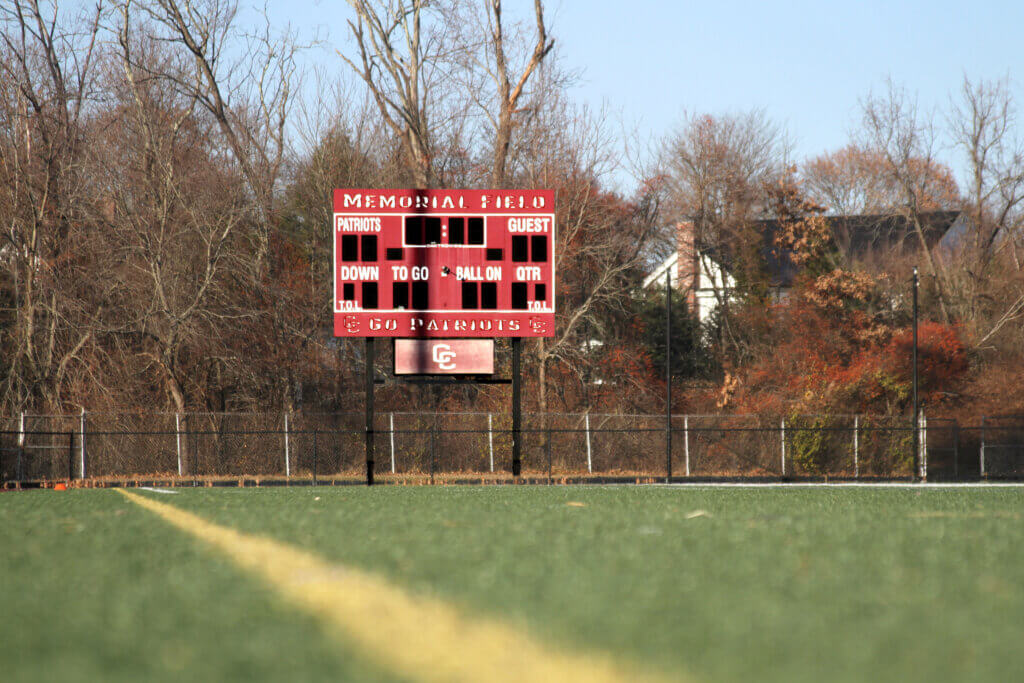
The committee now has a slate of cheaper options, thanks in part to a state plumbing code change that let designers reduce the number of toilets in the plan from 23 to 16.
“The number of restrooms does not seem exorbitant now,” said S3 Design principal Sal Canciello. “They seem reasonable for the size of the facility and the spectators.”
The School Committee’s options fall under three main categories.
A prefabricated design would be the cheapest choice. But the building would last only about 10 years, according to Canciello, and it would lack a concession stand that officials hope to include in the amenities building.
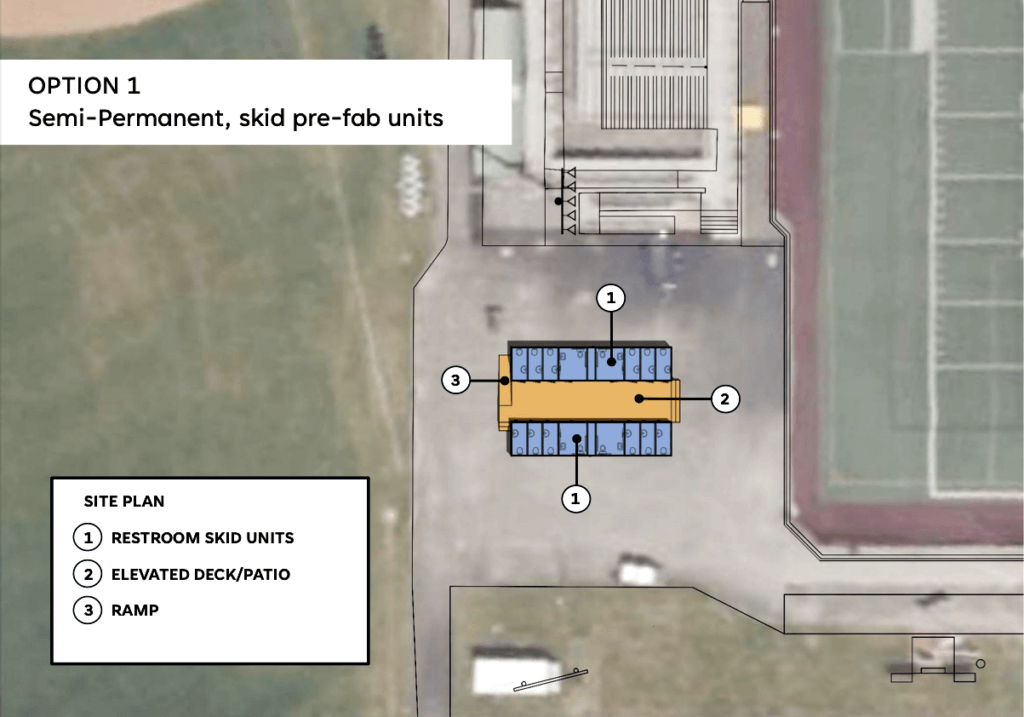
A modular design would minimize on-site construction time and provide some customization options, but it would be more expensive than any other option.
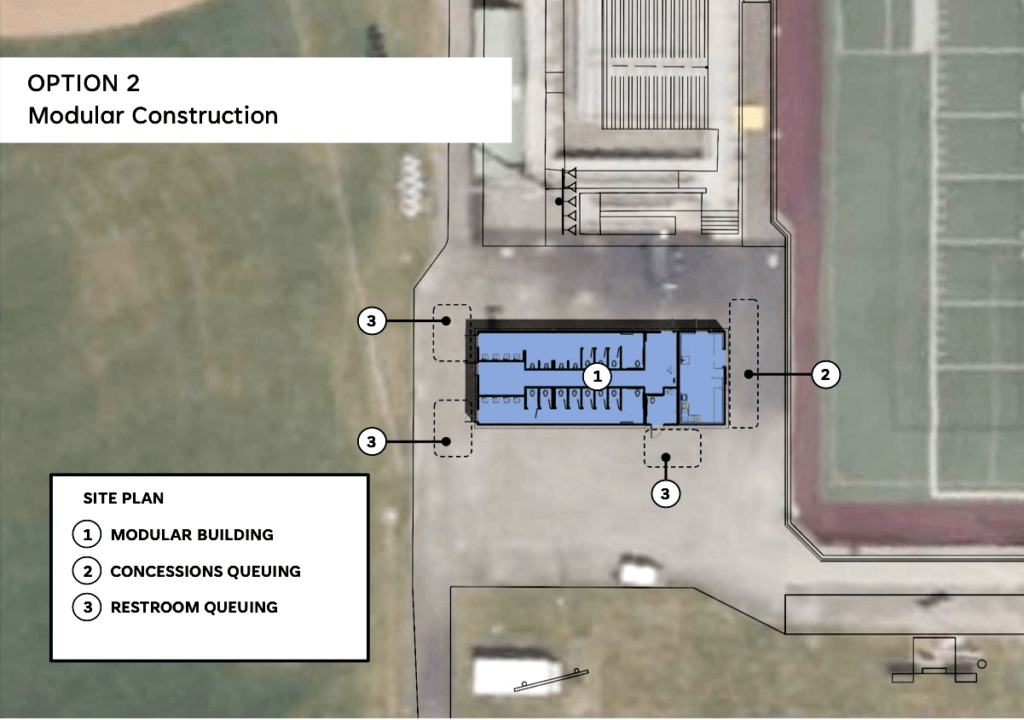
A traditional design with concrete or wood frame construction would be a “50-year building,” Canciello said. It would also allow for more customization. But construction would take longer and cost from $1.42 to $1.85 million.
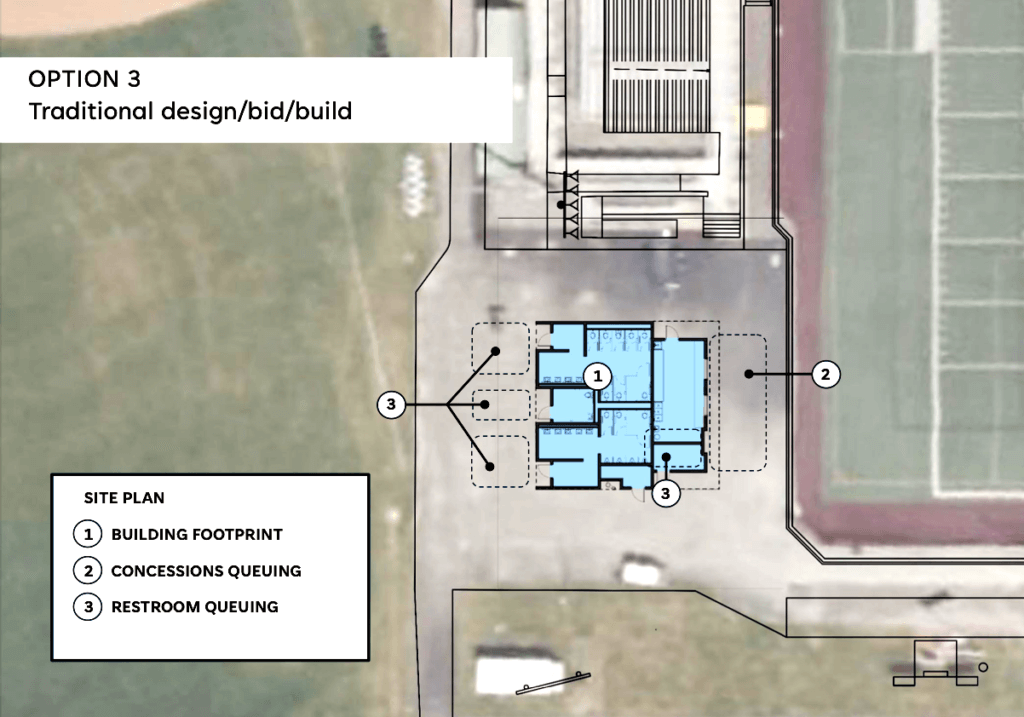
School Committee members informally ruled out the modular design during their November 19 meeting, focusing instead on the prefabricated and traditional options.
‘Inclusive community’
Concord-Carlisle Youth Soccer president Seth van der Swaagh backed the amenities building in an email to The Concord Bridge.
He said being out of compliance with the plumbing code is “irresponsible” and warned the town could face legal liability. Regardless of liability, van der Swaagh said, “It’s absolutely the right thing to do.”
“CCHS campus is far more than a school; it’s a community space open to multiple generations,” he said. “[T]he players, opponents, parents, grandparents, and community members who visit those fields should have restroom facilities that are modern, accessible, and clean.”
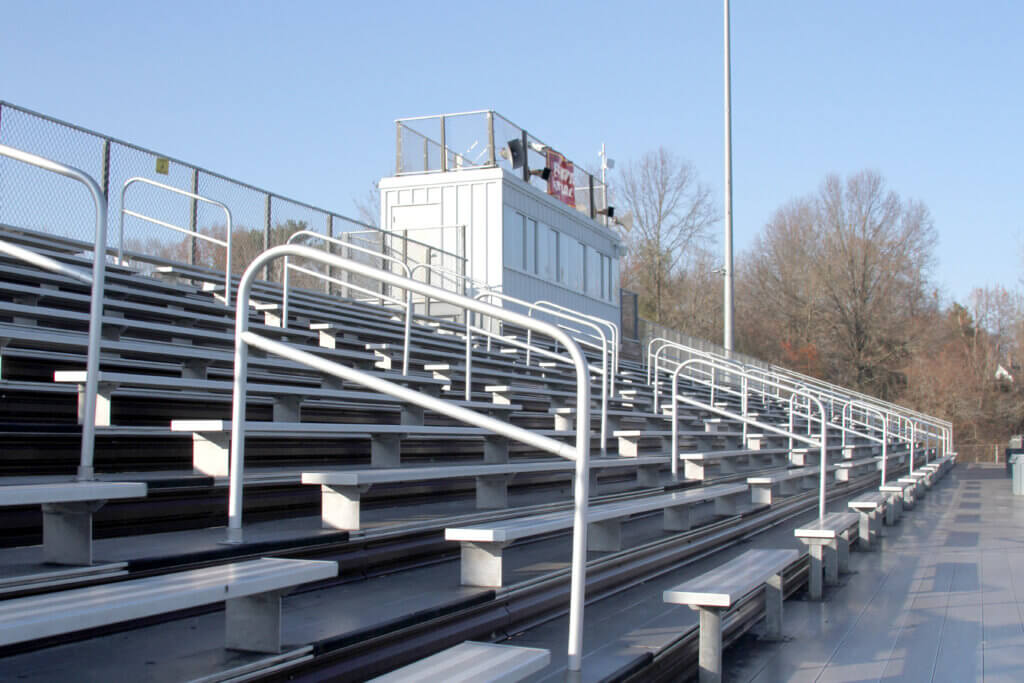
Members of the Concord Public/Concord-Carlisle Regional Special Education Parent Advisory Council also supported the amenities building in a joint statement, saying, “This is an essential step to Concord achieving its goal of being an inclusive community.”
In an interview, Commission on Disability chair Jean Goldsberry said, “The commission is certainly in support.”
She said she was happy to hear the project had been downsized and said the appeal of the building extends across ages and abilities.
“For anyone, whether they have a disability or not,” she said, “it’s always better to have flushing toilets and running water to wash your hands versus a porta-potty and hand sanitizer.”

Asked for his thoughts on the amenities building, FinCom chair Eric Dahlberg said the committee had not yet taken a position.
“I commend school leadership for identifying options for consideration,” he said. “We now need to understand how and when this may fit into the town’s broader list of capital needs.”
Dahlberg urged taxpayers to “speak up and make their preferences known” and highlighted public comment sessions at upcoming FinCom meetings as a chance to do so.



